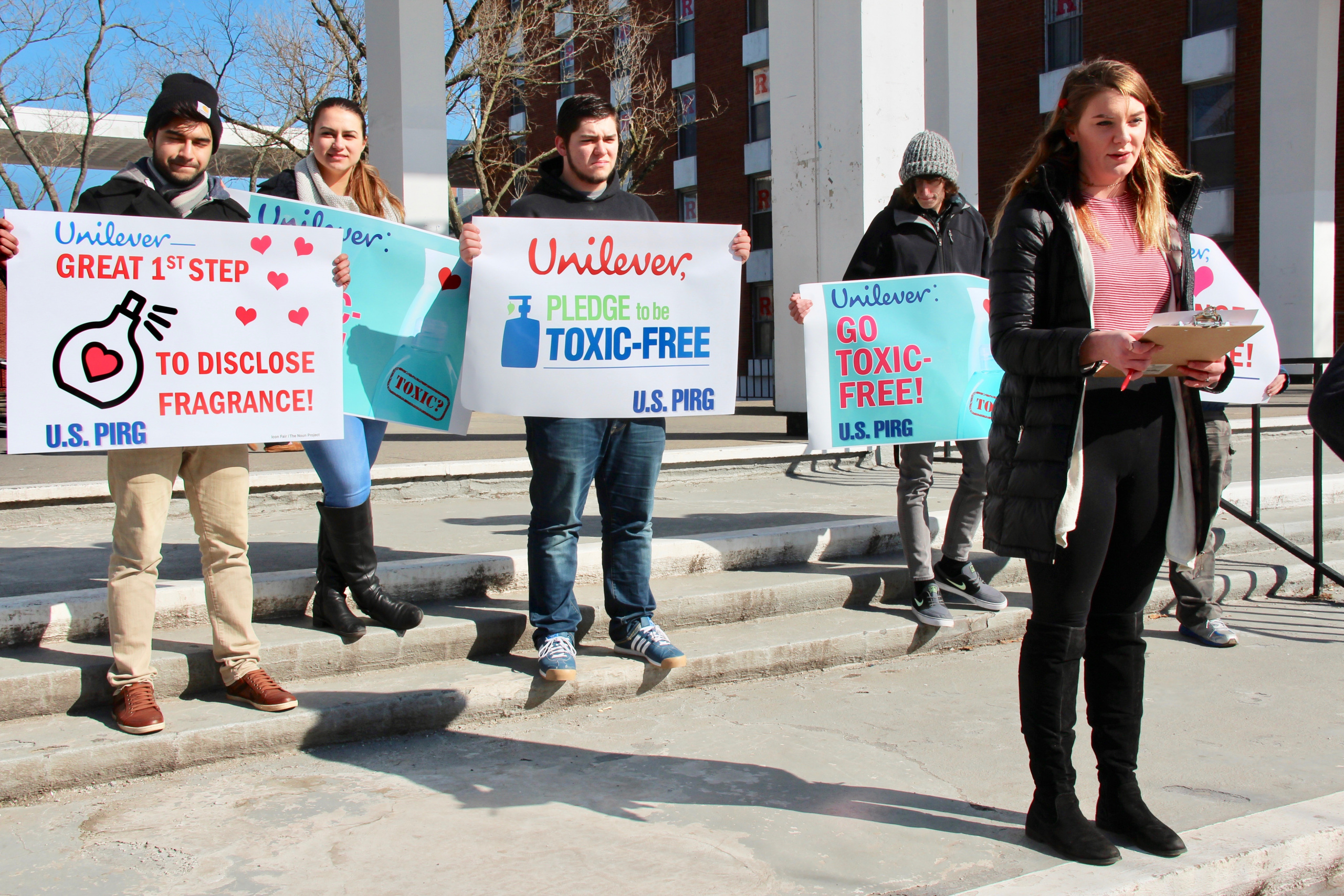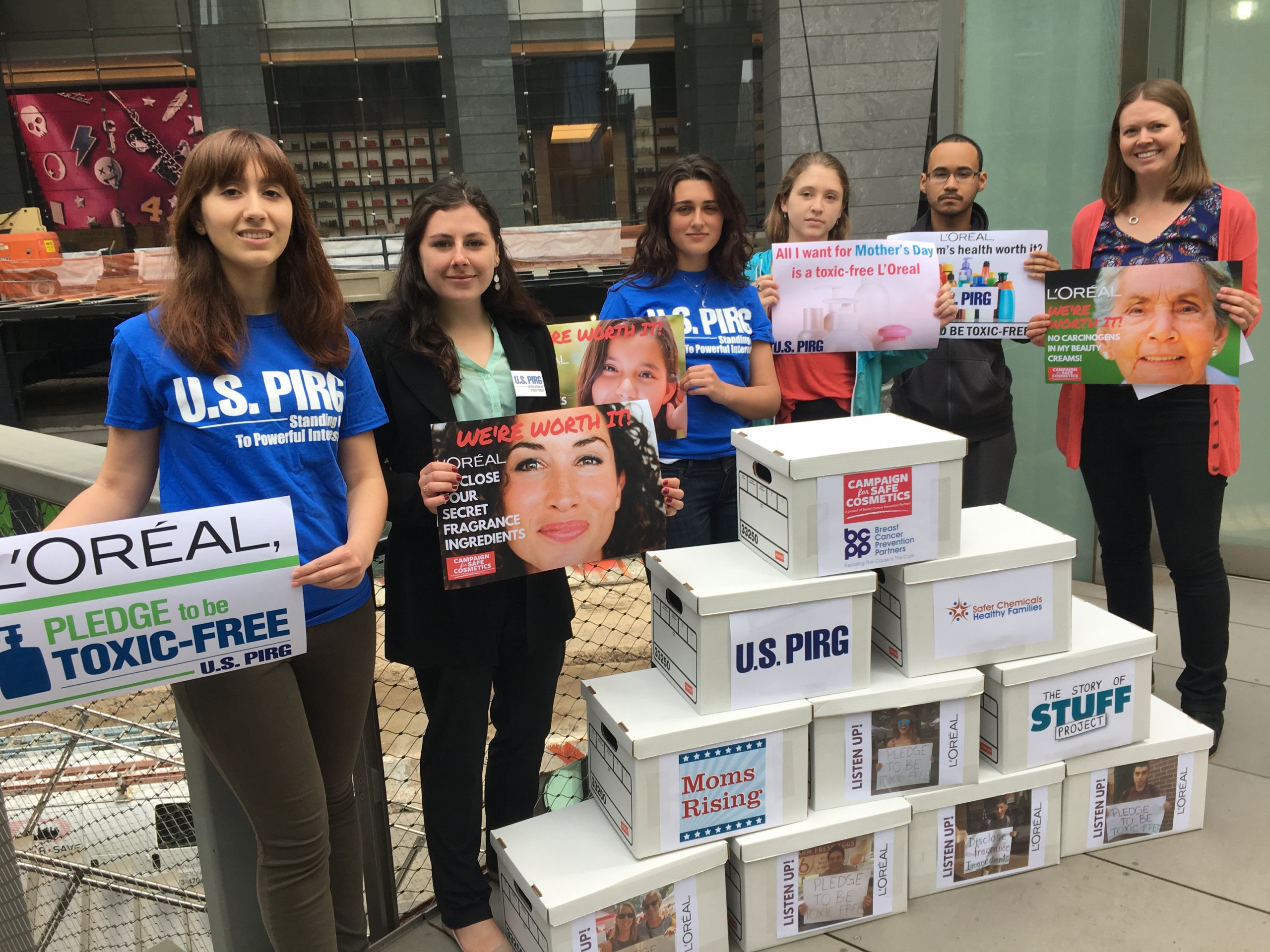A Year In Review: Progress Getting Toxic Chemicals out of Personal Care Products
In the past year, we’ve seen a lot of progress to get toxic chemicals out of personal care products and to convince companies to disclose fragrance ingredients. Consumers are at the forefront of making that happen, and I’m proud that we’ve been able to harness consumer preferences and push several companies to do better.
If you give consumers the choice between a shampoo containing cancer-causing chemicals and one without, I think it’s fairly obvious which one they’d choose to wash their hair with.
Smaller, niche companies used to be the go-to providers for toxic-free products, but many of them are now anything but small. For example, The Honest Company skyrocketed to a valuation of $1.7 billion within its first three years, and now the old guard companies are responding.
In the past year, we’ve seen a lot of progress. Consumers are at the forefront of making that happen, and I’m proud that we’ve been able to harness consumer preferences and push several companies to do better.
Here’s what’s happened over the past year:
Procter & Gamble (P&G) increases transparency and removes triclosan
Back in December 2016, personal care product giant P&G, the maker of Olay, Pantene, and Old Spice, unveiled a new preservative tracker, which lets consumers know which preservatives are included in various categories of P&G’s products, such as baby wipes, skin care, and hair care products. Consumers can search the tracker by ingredient or by product type.
Preservatives are often used in personal care products in order to prevent the growth of microbes in product containers. Common preservatives include parabens, formaldehyde, and phenoxyethanol. Many of these preservatives have been linked to negative health effects like cancer and reproductive problems.
P&G’s announcement came just months after U.S. PIRG Education Fund and coalition partners called on P&G to be more transparent in their products, especially regarding fragrance ingredients. We also collected hundreds of photo petitions on college campuses and in local communities across the country calling on the company to pledge to go toxic-free and disclose ingredients.
P&G has also committed to phase out the use of triclosan/triclocarbon by 2017. Studies have linked triclocarbon to hormone disruption. Consumers can find a full list of common ingredients that P&G does not use on their website.
Unilever and P&G commit to fragrance disclosure
In February 2017, Unilever USA made a bold move and committed to disclose most of its fragrance ingredients by 2018 through SmartLabel. The ingredient “fragrance” or “parfum” refers to a mixture of scent chemicals and ingredients that are not required by law to be disclosed. According to the International Fragrance Association approximately 3,000 chemicals can be used to make fragrance, some of which have been linked to cancer, reproductive and respiratory problems, and allergies. Unless companies willingly disclose fragrance ingredients, consumers are left in the dark.
Their announcement came just one year after U.S. PIRG and several other consumer, public health, and environment groups called on Unilever to disclose fragrance ingredients, and we thanked them by delivering over 25,000 petition signatures to Unilever USA’s headquarters in New Jersey on Valentine’s Day. The petitions called on Unilever to disclose fragrance ingredients and pledge to go toxic-free. The petitions were collected by U.S. PIRG, the state PIRGs, Breast Cancer Prevention Partners’ Campaign for Safe Cosmetics, and Safer Chemicals Healthy Families.

PIRG activists thanking Unilever for its fragrance disclosure announcement and calling on it to go toxic-free
Unilever’s top competitor, Procter & Gamble, followed suit and in August 2017, made a similar commitment to disclose fragrance ingredients in all of its products by the end of 2019. U.S. PIRG has been calling on P&G to disclose fragrance ingredients since last year and this announcement came just weeks after U.S. PIRG delivered thousands of petitions to P&G headquarters in Cincinnati.
SC Johnson removes galaxolide and discloses skin allergens
In addition to personal care product companies, cleaning product company SC Johnson, maker of popular brands like Pledge and Glade, has made progress to go toxic-free and increase transparency over the past year.
In March 2017, just three months after U.S. PIRG delivered several thousand petition signatures to SC Johnson’s headquarters asking them to remove the fragrance ingredient galaxolide from its products, the consumer product company announced that it will remove the harmful chemical and replace it with safer alternatives. The chemical should be removed from products because a recent chemical assessment revealed that galaxolide can interfere with hormones, which can cause developmental, reproductive, and behavioral problems.
And in December 2017, SC Johnson went live with its website which discloses over 300 potential fragrance and non-fragrance skin allergens that it uses in products. It also discloses on its website which products contain which skin allergens.
L’Oréal needs to step up
Missing from our list is one of the most well-known cosmetic and personal care companies, L’Oréal. For Mother’s Day, U.S. PIRG delivered over 150,000 petitions collected by U.S. PIRG, Campaign for Safe Cosmetics, Safer Chemicals Healthy Families, CREDO Action, Moms Rising, and Story of Stuff calling on the company to disclose fragrance ingredients and to remove chemicals of concern. The company has yet to respond to our concerned members and has not made a meaningful commitment to pledge to go toxic-free. U.S. PIRG will continue to engage our members and the company to get L’Oréal to follow the lead of its competitors and help protect public health.

U.S. PIRG and coalition partners deliver over 150,000 petitions to L’Oréal.
In addition, U.S. PIRG calls on P&G, Unilever, and SC Johnson to remove chemicals of concern from their products.
Additional marketplace progress
While our campaign has concentrated on manufacturers, retailers have also been making strides to go toxic-free, thanks in large part due to Safer Chemicals Healthy Families’ Mind the Store campaign and partner groups. We’re pleased to work with them to get toxics out of store products.
In January 2017, Target Corp. unveiled a bold new chemical policy to eliminate and disclose certain harmful chemicals from their products. Target’s new policy will phase out a wide range of chemicals of concern, including phthalates, certain parabens, and formaldehyde-donors, and also sets a goal to disclose all “fragrance” ingredients in personal care products by 2020.
Also, in April 2017, CVS announced that it will remove parabens, phthalates, and the most prevalent formaldehyde donors across nearly 600 beauty and personal care products from CVS-brand product lines by the end of 2019.
And in June 2017, Costco announced that it will test certain product categories such as personal care products, apparel, and cleaning products for certain chemicals of concern and that it has been updating its Restricted Chemical List. This came after we collected nearly 8,000 petition signatures from our members across the U.S. asking Costco to develop a robust chemical policy.”
In September 2017, retail giant Walmart announced that it is updating its sustainability policy to restrict toxic chemicals in 90,000 products including cosmetics and skincare items, infant products, and household cleaners. Walmart aims to reduce its consumables chemical footprint for Walmart and Sam’s Clubs U.S. stores by 10 percent by 2022. The company will also ask suppliers to verify the purity of ingredients where contaminants of concern may exist.
It’s been a big year for the Pledge to be Toxic-Free campaign and we look forward to even bigger commitments from major consumer companies to remove harmful chemicals from everyday products

